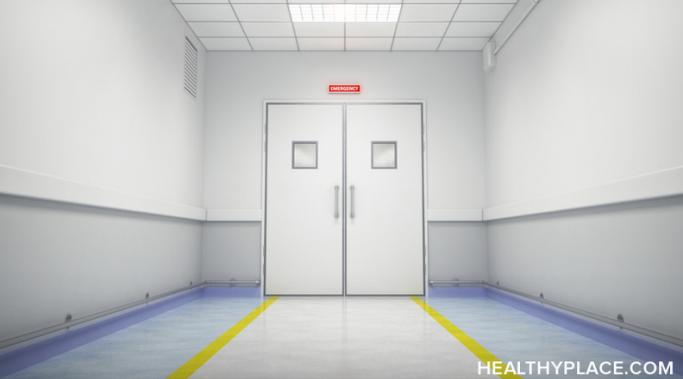Blogs
If you use dialectical behavior therapy (DBT) skills to communicate with confidence you will notice incredible changes. Who doesn't want to feel more in control and confident before entering a conversation, especially if there is some tension between you and the other person? This new DBT skill is one of the best skills I've come across to help you confident before you say a word. The video will help you use DBT skills to communicate with confidence.
My mother with mental illness died last week. She was 85 years old. Here I share my recollection of being raised by a mother with mental illness.
The definition of mental illness recovery is a “return to a normal state of health, mind or strength. To regain possession or control of something stolen or lost.” For me, and for others suffering with a mental illness, the loosely named "recovery" is the ultimate goal. To integrate back into normality, to regain the possession of broken faculties, to retrieve the logical mind that has somehow been lost. That is mental illness recovery.
Biological markers for combat posttraumatic stress disorder (PTSD) are being found more and more today, so anyone that says it’s “all in your head” really needs to give theirs a shake. What we know today is that there are significant, biological differences between those who suffer from combat PTSD and those who don’t. These biological markers for combat PTSD may allow clinicians in the future to easily and correctly diagnose veterans with PTSD and even predict who is likely to get combat PTSD if they enter a combat zone.
The decision to come out as queer may affect your mental health and is a very difficult and emotional decision. There are many people who do not have the chance to come out as lesbian, gay, bisexual, transgender or questioning (LGBTQ) because of discrimination and potential violence. Many young LGBTQ people run the risk of getting kicked out by their parents. When a person is safe and comfortable to come out as queer, though, the results can be extremely positive and can even improve his or her mental health.
Binge eating disorder is a real illness. Shocking, I know. Something in the Diagnostic and Statistical Manual of Mental Disorders, fifth edition (DSM-V) (the manual for psychiatric disorders), something that doctors, therapists, and other mental health professionals have been working with, something that has medication for it, is actually a real illness. Take your time, if you need some. I know this might be really startling. But stay with me; binge eating disorder is a real illness..
Mental illness and guilt towards friends can impact our friendships and how we feel about ourselves. If feelings of guilt persist, they can lead to feelings of depression and can exacerbate the symptoms of our diseases. But dealing with guilt towards friends with regard to mental illness early can help you maintain healthy relationships and restore your emotional equilibrium.
What are the housing rights of people with mental illness? I was informed on Tuesday that I have to move due to my apartment building being infested with roaches, bedbugs, and mice (One of whom I've named Boo because he pops up when and where I least expect him--seriously, Boo, on my Wii U's power cord?). As I've searched for a place to live, I have discovered answers to the question "What are the housing rights of people with mental illness?" I discuss three rights in this video.
Do you ever get tired of anxiety, with all of its frustrations and limitations? An anxious mind can be exhausting; adopting a beginner’s mind can be uplifting and freeing. The concept of a beginner’s mind, called shoshin, comes from Zen Buddhism, and it teaches us to approach life as a beginner. This can feel refreshing, given that anxiety constantly tries to rule our lives as an authoritarian expert. If you’re tired of living with anxiety, adopt a beginner’s mind.
I’ve learned, over a lot of time spent depressed, that you have to celebrate the small wins in bipolar depression. It’s absolutely crucial. You absolutely must recognize the little things if you have even half a hope of feeling better. You have to congratulate yourself for getting up, getting dressed, taking a shower and doing other impossible tasks when you have bipolar depression. Celebrating the small wins in bipolar depression sustains you while the big wins are on their way.









I believe she will only be able to rid herself of her demons, and hopefully her BPD as well, when she's ready to confront the abuse of her father. If she can put the blame where it belongs, she may stop projecting that victim/perpetrator cycle on the present men in her life. These demons are a metaphor for the purgatory she has created for herself. That reality has consequences in the real world, but it need not be real in the tangible sense. Exorcising her demons will require the expenditure of real physical energy and probably the destruction of aspects of her personality. If this ever happens, and it's possible but not probable, then these demons will evaporate. They are only as real as one's personality is real. In short, reality is not the question, it's what you make of the things you feel to be real.